Premium Only Content
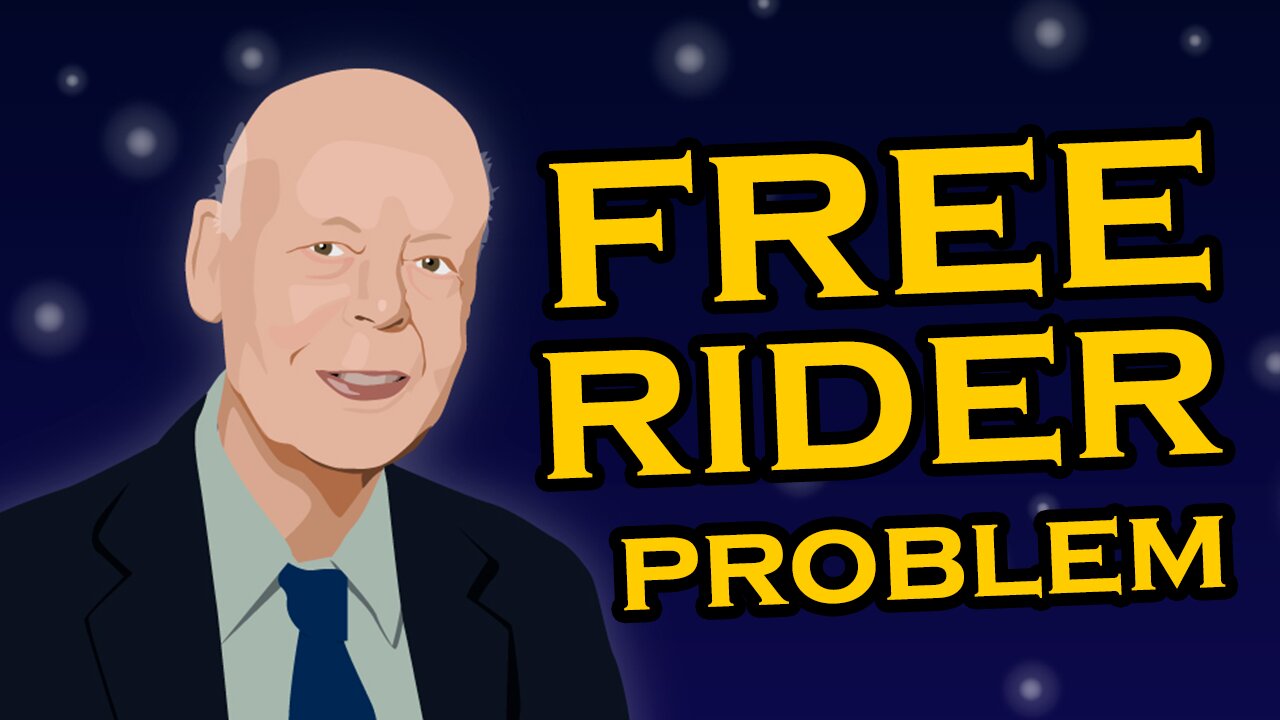
What is the Free-Rider Problem? Economical explanation
From Wikipedia: https://en.wikipedia.org/wiki/Free-rider_problem
In the social sciences, the free-rider problem is a type of market failure that occurs when those who benefit from resources, public goods (such as public roads or hospitals), or services of a communal nature do not pay for them or under-pay. Free riders are a problem because while not paying for the good (either directly through fees or tolls or indirectly through taxes), they may continue to access or use it. Thus, the good may be under-produced, overused or degraded. Additionally, it has been shown that despite evidence that people tend to be cooperative by nature, the presence of free-riders cause this prosocial behaviour to deteriorate, perpetuating the free-rider problem.
The free-rider problem in social science is the question of how to limit free riding and its negative effects in these situations. Such an example is the free-rider problem of when property rights are not clearly defined and imposed. The free-rider problem is common with public goods which are non-excludable and non-rivalrous. Non-excludable means that non-payers cannot be stopped from getting use of or benefits from the good. Non-rival consumption stipulates that the use of a good or service by one consumer, does not reduce its availability for another consumer. These characteristics of a public good results in there being little incentive for consumers to contribute to a collective resource as they enjoy its benefits.
A free rider may enjoy a non-excludable and non-rivalrous good such as a government-provided road system without contributing to paying for it. Another example is if a coastal town builds a lighthouse, ships from many regions and countries will benefit from it, even though they are not contributing to its costs, and are thus "free riding" on the navigation aid. A third example of non-excludable and non-rivalrous consumption would be a crowd watching fireworks. The number of viewers, whether they paid for the entertainment or not, does not diminish the fireworks as a resource. In each of these examples, the cost of excluding non-payers would be prohibitive, while the collective consumption of the resource does not decrease how much is available.
Although the term "free rider" was first used in economic theory of public goods, similar concepts have been applied to other contexts, including collective bargaining, antitrust law, psychology, political science, and vaccines. For example, some individuals in a team or community may reduce their contributions or performance if they believe that one or more other members of the group may free ride.
-
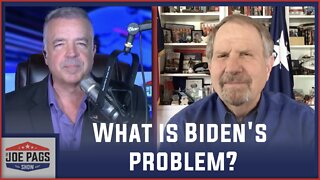 17:08
17:08
Joe Pags
3 years agoWHAT Is Biden's Problem?
536 -
 1:11
1:11
1SolProtocol
3 years agoWhat is 1Sol? Simple Explanation.
39 -
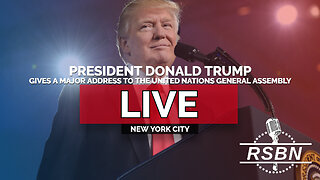 2:31:14
2:31:14
Right Side Broadcasting Network
23 hours agoLIVE REPLAY: President Trump Gives a Major Address to the United Nations General Assembly in NYC - 9/23/25
84.4K75 -
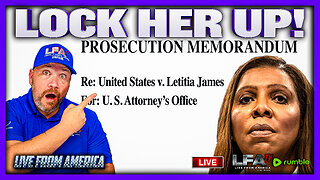 LIVE
LIVE
LFA TV
12 hours agoBREAKING NEWS ALL DAY! | TUESDAY 9/23/25
4,557 watching -
 LIVE
LIVE
The Big Mig™
2 hours agoAutism, The Deadly Truth
5,447 watching -
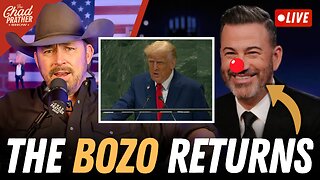 LIVE
LIVE
Chad Prather
1 hour agoJimmy Kimmel UNCANCELLED After Charlie Kirk Remarks + Did Trump, RFK Jr. Get It Right W/ Tylenol?
605 watching -
![#335 Fraud, [S]elections & the Gatekeepers of the BIG Money w/ Walter Charlton & Draza Smith](https://1a-1791.com/video/fww1/6e/s8/6/o/z/D/k/ozDkz.0kob.2.jpg) LIVE
LIVE
The State of Freedom
5 hours ago#335 Fraud, [S]elections & the Gatekeepers of the BIG Money w/ Walter Charlton & Draza Smith
81 watching -
 1:44:38
1:44:38
Dear America
3 hours agoTrump Vs Big Pharma!! The Autism Epidemic Must End… + Jimmy Kimmel Is back?!
126K41 -
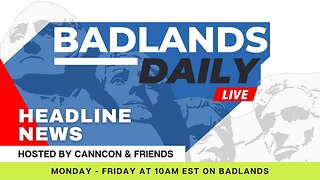 LIVE
LIVE
Badlands Media
10 hours agoBadlands Daily: September 23, 2025
3,108 watching -
 LIVE
LIVE
MattMorseTV
3 hours ago $3.49 earned🔴Trump's United Nations BOMBSHELL.🔴
838 watching